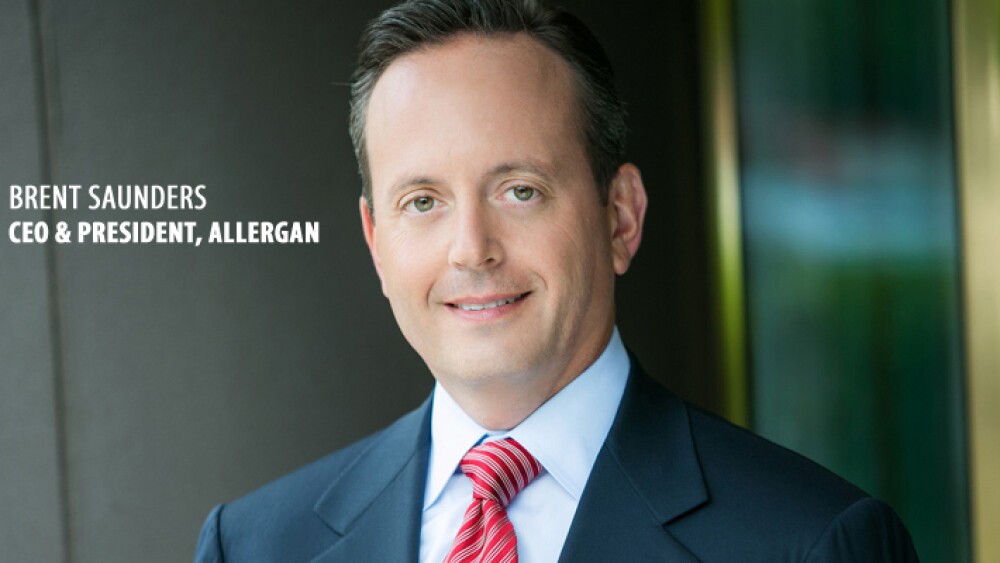June 7, 2016
By Mark Terry, BioSpace.com Breaking News Staff
Brent Saunders, chief executive officer of Dublin-based Allergan , talked strategy, past and future, at The Deal’s Corporate Governance Conference yesterday. And he had plenty to talk about, given his experiences with Valeant Pharmaceuticals International , the breakup of the Pfizer-Allergan deal, and the recent investment by activist investor Carl Icahn of a large stake in Allergan.
When asked on how he deals with activist investors, Saunders indicated it’s all about having a solid strategy to defend. He noted that shareholders used to question why he didn’t use the same practices as now-ailing Valeant when it was hiking drug prices and making hostile takeover bids.
I would get criticized for not maximizing shareholder return,” he said to TheStreet’s Jim Cramer. “But the reality is you have to have strategy.”
He also took a second to take a shot at the government’s interference with the Pfizer-Allergan deal, saying, “In this case the government was an activist.” He said that the deal had been structured very conservatively and he’d had maybe 90 percent confidence in it holding together, with one big question on his mind: “Would the government do something beyond their authority? Which is what the Treasury ultimately did.”
It should be pointed out that regulators argue that the rules regarding tax inversions are well within the department’s purview, and that congress has been urging action on these types of deals for some time. Although with a congress as recalcitrant as this one, actually getting meaningful legislature passed is probably too much to expect.
Numerous analysts have questioned Icahn’s investment, since he has a strong history of activism. Icahn and Saunders have worked together before, when Icahn installed Saunders as the new chief executive at Forest Laboratories .
Saunders, apparently no fan of Valeant, even before its failed hostile takeover attempt of Allergan, also noted that when he ran Bausch & Lomb, he hadn’t liked how Valeant handled that acquisition.
“I wasn’t happy with the way Valeant acquired Bausch & Lomb,” Saunders said. “At some point when it started to look pretty weak for Allergan, I said if there comes a time that you need a white knight, call me, because I don’t want to see Valeant strip Allergan like Bosch & Lomb.”
He also added that, “The hostiles never worked for Valeant, so I don’t know why they kept doing them.”
It seems clear that a lot of the questions Saunders faced at this interview revolved around concerns about Icahn’s future role with Allergan. Saunders noted that if a board member is in the middle of a proxy fight, it’s difficult to defend your overall strategy if you’re wrong on one of the issues, “as it creates a circumstance in which all of a company’s other issues are put under a magnifying glass.”
It’s not clear yet if Icahn has that in mind, although both Saunders and Icahn have indicated Icahn will be a passive investor. And he notes that in his experience at Forest, the then-CEO Howard Solomon was in his late 80s and Icahn believed that the company needed to do some accession planning.
“Carl in that context was absolutely right,” Saunders aid. “The company needed succession planning [and] needed to do an internal and external review.”





